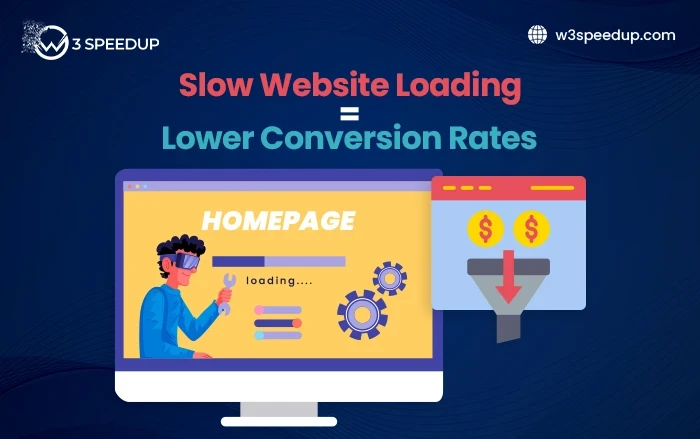We’ve all been there – having Googled up a product or service we might require, to find that the slow ‘spinning wheel of boredom’ keeps on turning as we wait for a website to load after we clicked on Google’s search result link. After what seems like an age, we curse under our breath and click an alternative link lower down the search engine result page – and that website loads quicker than a cat can jump off a hot tin roof. So, it turns out that the website ranked higher loses the sale, despite its search engine optimisation (SEO) or pay-per-click (PPC) campaign being better than its competitor – purely through index page loading speed.
In these situations, 30 seconds can seem like hours, and poor connection speed is one of the biggest friction points that can put off potential visitors to a website. In short, if it’s slow to load, your visitor will move down the road!
Improving slow website loading speeds is crucial to gaining visitors and keeping them engaged.
There are several reasons for slow page loading, so let’s have a look at a couple of the most common issues:
 Slow connection speed from the visitor’s ISP
Slow connection speed from the visitor’s ISP
As a website owner, clearly there’s little you can do about your unknown visitor’s connection speed. That will be determined by their own internet service provider (ISP). All you can do is optimise your site to be hosted by a quality provider and ensure that it can load as quickly as possible. You might also hope that your visitor is using a free VPN, as that facility (a Virtual Private Network) can speed up a person’s internet connection, especially if it’s being ‘throttled’ by their own ISP.
 Full throttle!
Full throttle!
Some ISPs can slow down a customer’s connection speeds to the internet if they’re using excessive amounts of data – for example where a household might include a teenage gamer and a work from home creative student. Those kids will be gobbling up the gigabytes faster than a stoner eating a candy bar!
In that case, Mom might be in her office trying to shop for something from your website, but the kids have slowed the household’s connection to a crawl after the ISP throttled the account.
But if the family were to be using a VPN, the encrypted intermediary server that the VPN provider places between the user’s device and the ISP both anonymizes the connection and scrambles its location. In effect, the ISP can’t slow down a connection if they don’t know who the connector is, nor where they are connected from.
 Slow loading speeds due to cheap hosting or server-side issues
Slow loading speeds due to cheap hosting or server-side issues
There’s an old adage that ‘you get what you pay for’ and that’s very true when it comes to choosing a host for your website. If it’s a cheap provider with scant support and shared hosting with ancient, outdated PHP software, the loading time of your index page might be painfully slow. Then you’re back to the scenario above of visitors voting with their feet.
Or your host might be excellent, but your site may be built in an outdated version of WordPress, with dozens of redundant plugins and widgets slowing it down. In that case you need a specialist company that assists in bumping up speeds and, in consequence, improving your Google results. It’s well known that search engines poorly rank sites that are slow to load.
 Content is king, AI the prince
Content is king, AI the prince
Another way of keeping visitors engaged is by producing great content for your site. Many website owners are taking to artificial intelligence (AI) to create compelling content, using sites like Chat GPT and others.
But in reality, AI is dumber than you might think. Whilst AI might be good at some things, for example determining website search engine results page order (SERPS) – it’s not very good at creating quality content. And what AI gives with one robotic hand, it takes with the other. For example, AI content detection algorithms rank AI produced web pages lower than pages containing quality information.
Many website owners ask copywriters nowadays to work at rock-bottom low rates to produce content, then find themselves surprised when those content writers themselves use AI to help them create it! AI-produced articles can be run through plagiarism and AI authored checking systems; but unfortunately, these software packages produce as many false-positives as genuine catch-outs.
In summary, if you’re going to use AI in your website marketing and promotions activities, just have it speeding up your servers and harvesting competitor keywords – don’t use it to create your own content.
For sure, AI is going to be useful in all our business lives, but those who will succeed the most will be companies that adopt to its use sensibly, identifying AI’s true potential, but not relying on it for everything.
In the final analysis, there’s no substitute for a human being designing and populating your website, making sure it loads as fast as it can on optimal hosting providers.
 Christmas Mega Sale – Enjoy Up to 50% OFF on Every Plan!
Christmas Mega Sale – Enjoy Up to 50% OFF on Every Plan! 


